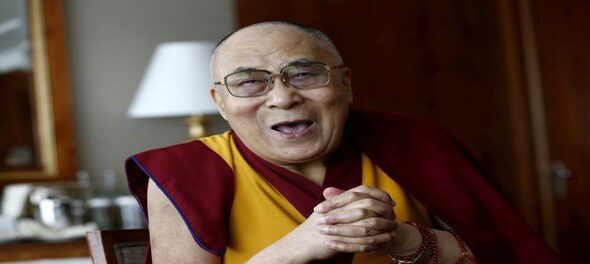
Unfortunately for us, the prospect of India recognising the Tibetan government in exile died with Lal Bahadur Shastri in 1966. For the next few years India was extremely careful not to antagonise China. The Indian government did not want Tibetans in exile to engage in any political activity that would be construed as anti-Chinese.
In 1966, when the Indian government asked His Holiness to abstain from making any statement denouncing the Cultural Revolution, he wrote to the Foreign Minister, Sardar Swaran Singh. His Holiness' letter of 17 September 1966 clearly shows his frustration: "We are always grateful to the Government of India for all the assistance extended to us and have at all times avoided actions which may cause embarrassment or inconvenience to the government. In view of this, is it not unreasonable to withhold the statement I had intended to release? The Tibetan people solely depend on the people and the Government of India." This was one of the few occasions when I was deeply disappointed with the attitude of Indian leaders concerning Tibet.

In 1972, Swaran Singh made a statement that ‘the question of sovereignty’ or ‘suzerainty’ in Tibet was a matter for the Chinese to decide. I was shocked and deeply saddened. I felt betrayed. Clearly, India wanted to lessen tensions with China. High officials from the Ministry of External Affairs came to meet His Holiness in Dharamsala to dissuade him from making his annual statement on March 10. He explained that not issuing a statement, which he had been doing since 1959, would be seen as caving in to Chinese pressure.
However, things changed when the Janata Party government came into power in 1977. They were not as deferential to China as the previous government, and several leaders were openly sympathetic to the Tibetan cause. His Holiness’ meeting with Prime Minister Morarji Desai in July 1977 was very cordial. Desai spoke about the cultures of India and Tibet and shared that they were like two branches of the same tree. The Dalai Lama has often quoted this phrase.
His Holiness used to regularly call on Indian leaders, and our early years at the Private Office were spent drafting letters and tracking correspondence with them. The popular Indian socialist leader, Jayaprakash Narayan, was a staunch supporter of Tibet, as were George Fernandes, Raj Narain and Atal Bihari Vajpayee, who even spoke about Tibetan independence when he was a Member of Parliament. Unfortunately, Vajpayee later changed his position when he became Foreign Minister, and later Prime Minister. George Fernandes was unwavering in his support for the Tibetan cause. He was openly supportive of the Tibetans even as the Defence Minister in the Vajpayee government. In a letter to Fernandes in October 1987, His Holiness wrote, "India has as much at stake in the future of Tibet as we Tibetans have."
Rajiv Gandhi became India’s youngest Prime Minister after the assassination of his mother Indira Gandhi in 1984. He was a breath of fresh air – sensitive, gentle and decent. My impression of him was confirmed by the way he treated His Holiness. The Indian government’s policy on Tibet had remained unchanged for over 25 years. His Holiness personally appealed to various leaders to review this policy. However, no one seemed to be interested, except Rajiv Gandhi who asked His Holiness to send him a memorandum on the issue. His Holiness submitted two. Rajiv Gandhi sent these to professor ML Sondhi, who was with the Indian School of International Studies at Jawaharlal Nehru University in Delhi. Unfortunately, Rajiv Gandhi’s tragic death in 1991 ended all hopes of the Indian government adopting a stronger, more favourable Tibet policy.
Excerpted from His Holiness the Fourteenth Dalai Lama: An Illustrated Biography by Tenzin Geyche Tethong. Published by Roli Books. Price Rs 1,295.
(Edited by : Jomy)
First Published: Nov 21, 2020 1:01 PM IST
Check out our in-depth Market Coverage, Business News & get real-time Stock Market Updates on CNBC-TV18. Also, Watch our channels CNBC-TV18, CNBC Awaaz and CNBC Bajar Live on-the-go!


Mark Mobius reveals how markets will react if NDA wins 400+ Lok Sabha seats
May 15, 2024 8:09 PM
Wine shops and bars to remain shut for 4 days in Mumbai in 4 weeks, check details
May 15, 2024 7:52 PM
INDIA bloc will win majority seats in Bihar, says Tejashwi Yadav
May 15, 2024 4:20 PM

